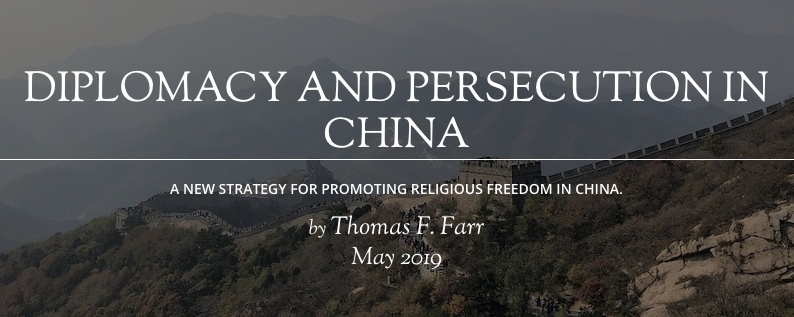In an article in the most recent issue of First Things, Thomas Farr, president of the Religious Freedom Institute, writes that “We are witnessing a global crisis in religious freedom” and that “China presents a particularly troubling case.”
Based on empirical research linking religious freedom to a variety of social goods, Farr calls on the United States to develop an evidence-based strategy for engaging China more effectively on these issues:
A new strategy of pragmatic argument would stand a chance of actually reducing religious persecution in China. Economic growth is a major priority for Chinese policymaking, both domestic and international. If Chinese authorities come to view the country’s religious communities as an economic asset and a driver of modernization, rather than as a source of social and political instability, they will become more receptive to arguments against persecution.
Read the full article: Diplomacy and Persecution in China.
THE RFI BLOG

Be More Faithful, Become More Resilient: An Invitation to Religious Institutions

How Soccer Reveals Different Meanings Of ‘Secular’ In France And The US

RFI’s Ismail Royer Meets with Delegation from India

Protecting the Unborn, Mothers, and Medical Ethics: The Stakes of Arkansas’ Amendment

Wisconsin Supreme Court Punishes Catholic Charities for Serving Everyone
CORNERSTONE FORUM

Public Bioethics & the Failure of Expressive Individualism

Religious Liberty in American Higher Education

Scotland’s Kate Forbes and the March of Secularism

70 Years of Religious Freedom in Sweden: Prospects and Challenges


